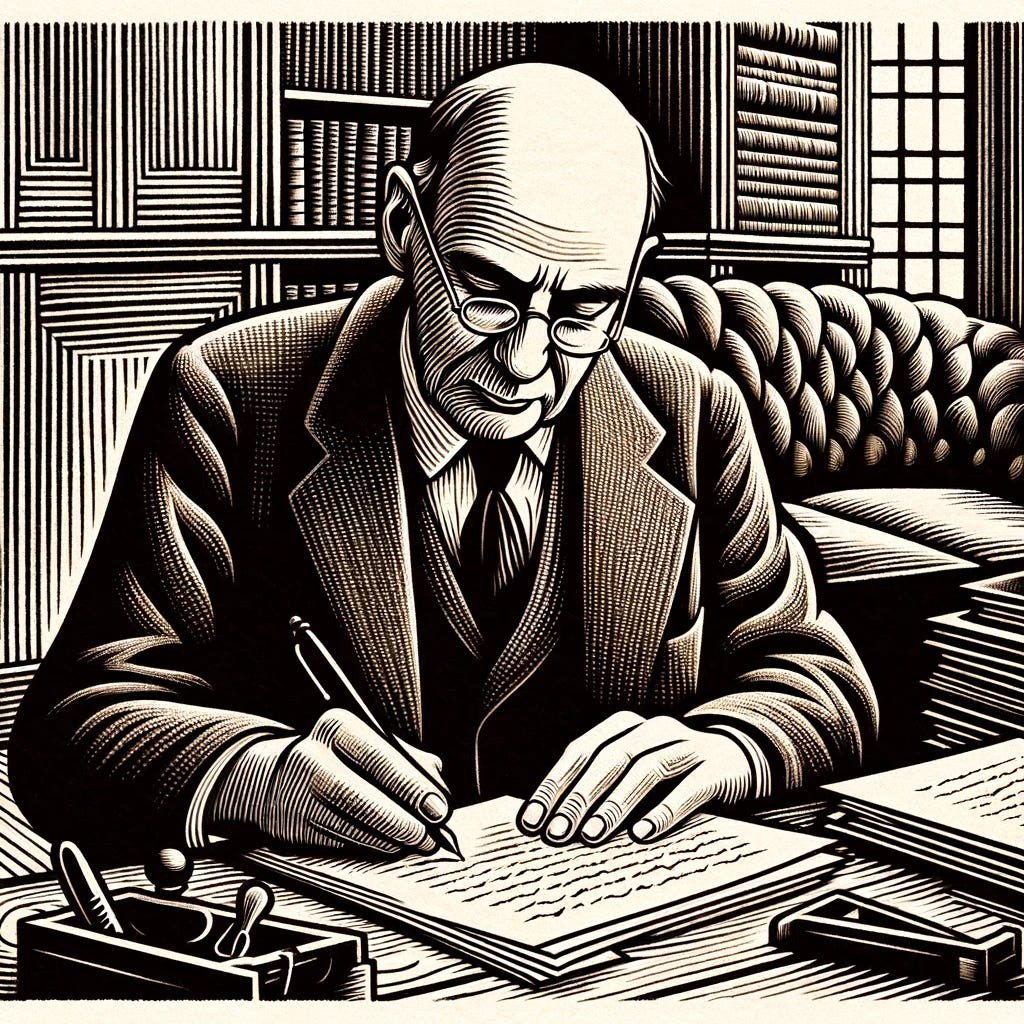C.S. Lewis: On Prayer and Presence
One mustn't make the Christian life into a punctilious system of law
In a letter dated February 20, 1955, from Magdalen College, C.S. Lewis1 offers spiritual guidance to his friend Mary, navigating the intricacies of prayer, the presence of God, and the spiritual life during times of illness. I flagged it because he insightfully discusses the pitfalls of legalism in spirituality and the distinction between feeling God's presence and the actuality of it. For me, this letter, is a gentle reminder of the grace that underpins my spiritual practices, encouraging me to always adapt them to my actual human condition. If you'd like to explore all of C.S. Lewis's letters to Mary, they can be found in the collection titled Letters to an American Lady.
From Magdalen College,
Cambridge
Dear Mary
20/2/55
Thanks for your letter of 14th. But why on earth didn't you write it a day later and tell me the result of the examination?
I don't think we ought to try to keep up our normal prayers when we are ill and over-tired. I would not say this to a beginner who still has the habit to form. But you are past that stage.
One mustn't make the Christian life into a punctilious2 system of law, like the Jewish [for] two reasons (1) It raises scruples3 when we don't keep the routine (2) It raises presumption when we do.
Nothing gives one a more spuriously good conscience than keeping rules, even if there has been a total absence of all real charity and faith. And people who stay away from Mass with the approval of their director and at the bidding of their doctor are just as obedient as those who go.
Check all these points with your confessor: I bet he'll say just the same.
And of course the presence of God is not the same as the sense of the presence of God. The latter may be due to imagination; the former may be attended with no "sensible” consolation.
The Father was not really absent from the Son when He said "Why hast thou forsaken me?" You see God Himself, as man, submitted to man's sense of being abandoned.
The real parallel on the natural level is one which seems odd for a bachelor to write to a lady, but too illuminating not to be used.
The act which engenders a child ought to be, and usually is attended by pleasure. But it is not the pleasure that produces the child. Where there is pleasure there may be sterility: where there is no pleasure the act may be fertile. And in the spiritual marriage of God and the soul it is the same. It is the actual presence, not the sensation of the presence, of the Holy Ghost which begets Christ in us. The sense of the presence is a super-added gift for which we give thanks when it comes, and that's all about it.
I am very sorry you are so overworked.
Thanks for the review of Griffiths' book which I have of course read and enjoyed al-ready.
And I'm so pleased about the Abolition of Man, for it is almost my favorite among my books but in general has been almost totally ignored by the public.
Give my love to Fanda: I am very "cat-minded". And always, let us pray for one another.4
Yours,
Jack
C.S. Lewis “Jack” (1898 -1963) was a British novelist, poet, academic, medievalist, literary critic, essayist, lay theologian, and Christian apologist. He is best known for his works of fiction, especially The Chronicles of Narnia, and his non-fiction Christian apologetics, such as Mere Christianity, Miracles, and The Problem of Pain. His works have been translated into more than 30 languages and have sold millions of copies. Lewis was born in Belfast, Ireland and attended Oxford University, where he was a distinguished scholar and teacher. He also wrote and lectured extensively on literary and theological topics, as well as offering critiques of popular culture, science and philosophy. He was a Fellow of the British Academy and a member of the Oxford Literary Society, and was awarded the Order of the British Empire in 1952. His legacy continues today with his works that continue to be read and studied by millions of readers around the world.
Overly meticulous about following every rule.
A feeling of guilt or uncertainty about one's actions in relation to religious observance.
Lewis, C. S.. Letters to an American Lady. United States: Eerdmans Publishing Company, 2014.


